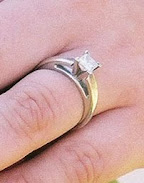The early scenes on foot-binding in this 19th-century Chinese story made me gag. And my feet tingle.
I started out determined to avoid cultural judgment and tried to compare foot-binding to breast implants or braces. Then I began to understand that these girls were made to break their own toes by walking on them while they were folded under their feet and bound. Mothers oversaw this relatively dangerous process (I think I read somewhere that 10 percent of girls died during foot-binding) so if she made a mistake - either fatal or simply aesthetic - all that pain was for naught.
But, once you get past this, you get a story about female friendship in a world where women had few public powers but vibrant, strong and colorful traditions too often marked by the harsh realities of famine and war.
The narrator insists that women had no independent value in this culture, but we see a father very publicly mourn his dying daughter, a daughter's advantageous marriage greatly improve a family's finances and a husband's genuine joy at being reunited with his wife after war. We see a son's most important duty being to his mother, so women are consistently vying to earn a great marriage match and then have a strong son. We see what should be familiar (conflicting) attitudes about the propriety of enjoying sex (which they hilariously call "bedroom business") and a more sober example of attempting to justify abuse.
And we see that love so strong that we forget where we end and the other begins can be undermined by our own dark thoughts and insecurities. A beautiful period piece.






